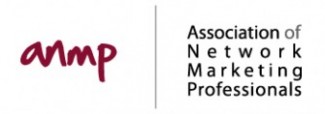And Other Completely Useless Questions
By Len Clements © 1998
In doing one’s due diligence of an MLM opportunity, there are a variety of very good, significant, revealing, and extremely important questions you should ask. Many articles, books, and tapes have been produced describing what, how and to whom you should ask these questions. But, what about the flip-side? There are, I believe, about as many totally useless, meaningless questions that provide little or no benefit to the prospective distributor. In fact, some of these often asked questions can even leave you open to deceptions and hype that otherwise may not have entered into the presentation.
Here are a few of my biggest “peeve questions:”
“Is your company debt free?”
I usually respond by saying, “Yes, if you don’t count all the things they owe money for.” You see, no MLM operation is truly debt free. Think about this. From even the most basic accounting stand pointaccrued commissions owed is a debt, is it not? Personally, I want the company I represent to have a HUGE amount of this debt! There’s also the possibility that a company is “debt free” because they can’t qualify for credit! It’s easy to be debt free when no one will loan you money. Also, consider what is involved with keeping up with a company’s growth curve. The difference between “keeping up” and “catching up” in this industry is usually the difference between life and death from a corporate stand point. If an MLM company gets even one month behind the growth curve it can be like letting go of the reigns of a wild horse. Forget it — it’s gone. How many times have we heard (or experienced) an MLM program where they have 1,000 reps one month, 2,000 the next, 3,000 the next, them boom — 30,000 the next. Followed by, of course, the inevitable and now cliche’ “growing pains” excuse. One very good reason the company is having these growing pains might be because they refused (or were unable) to take on some debt! Again, think about it. How would a company stay ahead of a potential 1,000% growth increase like the one just described? By installingmore phone lines than they currently need. By paying for moresophisticated computer software, and buying more hardware than they currently need or use. By occupying more office and warehouse space than is currently required. By maintaining moreinventory of product than they are currently moving. And how does an MLM company do this? By having a huge financial reserve or really deep pockets (as some, but not most, do) or — by accumulating some amount of debt! So, a company that claims to be “debt free” might actually be admitting that they are not positioned for significant, fast growth. Besides, since when does “debt” mean a business is not solvent and profitable? I’ve owned two very profitable businesses in my life (non-MLM) and both carried debt. It’s the amount of debt that counts. The simple fact that you do or don’t have it (or at least claim to not have it) is meaningless.
“Does your company manufacture its own products?”
There is really only one major advantage to an MLM company manufacturing their own products — one less middle man, thus usually a lower cost of products. But, of course, when an MLM company that manufactures its own products marks them up 900% so they can afford to pay out “The most lucrative compensation plan in MLM history,” well, the advantage is made pretty moot. Not only that, but several non-product manufacturing companies have reasonably priced products that are competitive with product producing companies. Personally, I’ve noticed very little difference in pricing between producers and non-producers.
Recently, I even had a prospect suggest that a competitor had “higher quality” products because they manufactured their own. Actually, it’s quite rare that an MLM company is also the manufacturing company. Usually, there is a separate product manufacturer which also happens to own an MLM company (or visa versa). Well, if a company that does not manufacture their own products were to be purchased by (or purchase a part of) their product manufacturer, how does that cause the quality of the products to increase?
The far better question might be, “Who formulates your products?” In other words, was their some real science, some real thought, put into these products, or were they simply whipped up and ranked out, with only token formulations, just so the company had some products to sell. Which is, I believe, the case with the majority of MLM product companies today. (I know I’m starting to sound real cynical. But believe me, I’ve earned the attitude.)
“Who manufactures your products?”
The reason I hate this one is twofold. First, I don’t know the answer. The vast majority of MLM companies do not reveal this information. No, not because there’s anything to hide, but simply because the product manufacturer demanded it! They really don’t want to be deluged with visits and telephone inquiries from hundreds, perhaps thousands of MLMers. Also, some manufacturers private label for more than one MLM company. Although the formulations could be vastly different, the perception might be that all the products are basically the same. The second reason I hate this question is because even if I did provide an answer it would likely be meaningless to the prospect. Okay, so I tell them the company is called American Diversified Products, Inc. So what? Now what are they going to do with that information. Either nothing, or start bugging ADP, Inc.
“Do your products work? How effective are they?”
Can you imagine someone answering this question by saying, “No, they don’t really work. They don’t have any effect on anyone.” Come on. This is a time waster question. Of course the distributor is going to tell you their products work! Personally, my product pitch is very simple. I can spend hours talking about the famous doctors and nutritional experts that developed the products and list all their credentials, I can tell stories about the history of the products and all the exotic locations around the word where we get our ingredients, I can get technical and go into all the stuff that happens in your body, on a cellular level, when you take the products, I can recite glowing testimonials relating all the miraculous results other people are getting, and blah, blah, blah, blah, blah… and then you try the products and they don’t work — you ain’t gonna’ buy ’em! But, if I tell you I don’t know a darn thing about these products, and you try them and get these “life changing” results we keep hearing about — you are going to be a customer of that product for life! The bottom line is that no MLM product is going to work for every single person. What it does for other people is irrelevant. There’s only one way that you, and all your prospects and customers, can know for sure if a product is genuinely effective. You’ve got to get it, but it on or in your body, and it works or it doesn’t work. Period.
“Do you really think this company is going to last?”
This question I don’t mind so much. It’s kind of like the question, “Can I really make money in this business?” It’s very unlikely that anyone in the 50 year history of network marketing has ever answered these two questions with a “No.” And if they did, their honesty level is probably about as high as their MLM income is low.
What the above two questions are really asking is, “How do youknow this is true?” They’re saying to you, “Convince me I shouldn’t be concerned — because I am.” This is a meaningless question only on the surface. Don’t blow it off with a simple “Oh sure, absolutely!” Give it some meaning.
“Is your company publicly traded?”
For most MLM companies, going public can be a blessing or a curse. Sure, it’s great to have a massive influx of cash to fund product development and foreign expansion, which is the explanation alwaysgiven for taking this action. But, how do we really know for sure what the motive was? Most companies don’t openly admit, “We’re going public because we need the money to survive.” But this is certainly the motive in at least some cases.
Also, a public company reduces the control and influence previously held by the owners. If the shareholders decide they don’t want to have their funds invested in one of those “pyramid deals,” they might have the power to change the company’s direction. Now, understand, this hasn’t happened yet, as far as I’m aware. But it certainly could happen, especially when a non-MLM public company purchases a privately held MLM company.
Finally, and most importantly, you have to open your books to the world. Sure, that works in your favor when things are going great. But when you have a bad quarter and sales drop 10%, which isnever suppose to happen to a geometrically progressing, right-before-momentum network marketing company (which is, like, all of them, right?!), what happens? Well, being the somewhat paranoid, fickle, flighty bunch of people that we are (MLMers in general, that is), the distributors get very nervous and confidence drops. Thus creating another bad quarter, and even less confidence and more nervousness.
When you’re looking good, going public makes you look great. But when you start looking ugly, going public means you can’t were makeup.
“What kind of comp plan is it?”
In no way is this a bad question unless the answer immediately determines your final decision. In other words, if you want to know if the company uses a break-away plan because you are avoiding ALL break-away plans, you might be missing out on some excellent opportunities. Same thing goes for those who are only looking for a certain type of plan. Some people will only consider unilevels. Some absolutely have to join a binary, while others unilaterally avoid them. This is kind of like a guy who likes brunettes refusing to date blondes. When you’re looking for an MLM program to create a relationship with, there are a LOT of other things to consider besides this one aspect. For example, I personally don’t like binaries. I swore I’d never join one — yet today I’m in a binary program. It’s not the plan type that matters, it’s what the company does with it! There are good and bad plans in every category and no MLM program should be immediately dismissed based solely on the compensation plan category (well, except for Australian 2-ups, or any variation there of — which have had literally a 100% failure rate throughout the entire history of MLM).
“How many distributors does your company have?”
The main reason I hate this question is because I’m always afraid that my truths won’t compete with somebody else’s hype. This industry is so full of semantic game playing and data torturing that you really put yourself at a marketing disadvantage by being honest and factual. While you might claim your company has 20,000 distributors, based on the actual number of active, individual people who are currently ordering product, the next guy is likely to answer the same question by siting how many sequential ID numbers his company has given out in their ten year history (which might be 500,000, even though only 15,000 are currently still working the business). Or, they might site the number of “Income Centers” assigned in their binary plan, which is usually 3 to 5 times the number of actual people in the program (many prepaid calling card companies are practicing this like crazy right now). Besides, what does the answer to this question really mean? Isn’t the number given more of an indication of how long the company has been in business? If you were to have asked that question to an Amway distributor back in 1959 they would have given you a really small number. And if you had joined back then you’d probably be reading this from the seat of your private Lear Jet right now.
“How much money are you making?”
I really, really hate this question! (And no, not because I don’t make a lot of money in this business. I’m doing just fine, thank you).
To begin with, I think that this should be just as rude a question as it is in any other form of occupation. Imagine that question being asked of a doctor, a lawyer, a grocery store clerk, or whom ever. Only in network marketing is this considered an acceptable question. It’s not, folks. It’s no less private an issue as it is in any other business.
Another reason you should not ask this question is because the answer may possibly be considered illegal. There is much precedent to show that siting specific incomes, whether in writing or verbally, or even making income projections, may be considered misleading or deceptive by various regulatory agencies unless you also state what percentage of all distributors are also earning that income, and what the “average” distributor is earning within your geographic area. This is, of course, information few distributors possess, nor would they want to divulge.
There are also so many ways for the answer to be technically true, but not totally. If you ask for the monthly income figure of a prospective sponsor and he says $25,000, how do you know what his “net” is? What if he had to spend $25,000 to earn it? Could you duplicate that? Or, how do you know if this income was created by him moving a large downline over from another company? Could you duplicate that? Or, how do you know how much of that income came from books, tapes, and other promotional material they sold to their downline? How do you know he didn’t earn $50,000 the month before, and $90,000 the month before that? On it’s own, 25k per month sounds pretty good, but placed in this perspective it now appears as if the organization is falling apart! How do you know how the income is being distributed? What if the company paid $25,000 to ten distributors, and thousands of others earned nothing? What if 90% of all the distributors were earning at least something, and this $25,000 earner was only “average” for the company? (Both scenarios are intentionally exaggerated to emphasize the point).
Finally, and most of all, the question has little or no barring what-so-ever as to how well the compensation plan pays or how good a network marketer you are. Much like the “how many distributors” question, your answer is more a gauge of how long you’ve been working that particular opportunity. The answer is also greatly effected by how much effort you are putting into the business and the caliber of talent in your downline. Had you asked the wealthiest, most successful network marketer in the country how much money he or she was earning the day after they had signed their distributor application they would have had to answered “nothing.” Does that mean he or she is not a good network marketer or their compensation plan doesn’t pay well? Obviously it doesn’t. On the other hand, some of the wealthiest people in this business are working with compensation plans that are not at all the highest paying — but they’ve been working them for ten or twenty years.
A better question might be, How much do you want to earn, and what are you going to do to earn it. How much your sponsor earns doesn’t count. You can’t buy groceries with your upline’s money.










